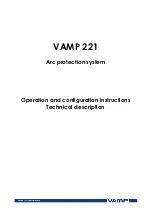
Figure. 5.3.1 - 85. Delayed pick-up release, delay counter value is decreasing during the release time.
The resetting characteristics can be set according to the application. The default setting is delayed 60
ms and the time calculation is held during the release time.
When using the release delay option where the operating time counter is calculating the operating time
during the release time, the function will not trip if the input signal is not activated again during the
release time counting.
Stage forcing
It is possible to test the logic, event processing and the operation of the relay's protection system by
controlling the state of the protection functions manually without injecting any current into the relay with
stage forcing. To enable
Stage forcing set the Enable stage forcing to ENABLED in the General menu.
After this it is possible to control the status of a protection function (Normal, Start, Trip, Blocked etc.) in
the
Info page of the function.
NO
NOTE!
TE!
When
Stage forcing is enabled protection functions will also change state through user input.
Injected currents/voltages also affect the behavior of the relay. Regardless, it is
recommended to disable
Stage Forcing after testing has ended.
5.3.2 Non-directional overcurrent protection (I>; 50/51)
The non-directional overcurrent function is used for instant and time-delayed overcurrent and short-
circuit protection. The number of stages in the function depends on the relay model. The operating
decisions are based on phase current magnitude, constantly measured by the function. The available
phase current magnitudes are equal to RMS values, to TRMS values (including harmonics up to 32
nd
),
or to peak-to-peak values. The blocking signal and the setting group selection control the operating
characteristics of the function during normal operation, i.e. the user or user-defined logic can change
function parameters while the function is running.
A
AQ
Q-T215
-T215
Instruction manual
Version: 2.04
97














































